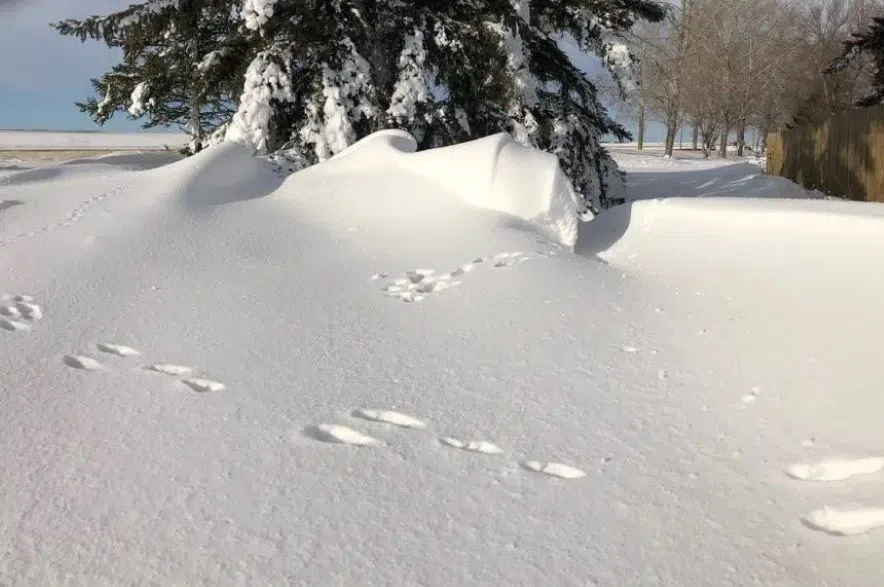The effects of the drought that hit many areas of Saskatchewan in the summer and fall could be felt next spring unless Old Man Winter brings a lot of snow to the province in the coming months.
The 2023 Conditions at Freeze-up Report issued Wednesday by the Water Security Agency (WSA) said the hot, dry conditions mean many areas are heading into the winter with below- to well-below-normal soil moisture levels.
That could pose problems for some producers next year.
“At this time, there are no areas where WSA believes that there is a heightened risk of above-normal spring runoff in 2024,” the report said. “There is, however, concern of surface water supply issues in the southwest if winter snowfall is below average. In some cases, an above-normal snowpack would be required to stave off extremely dry conditions.”
The WSA noted the snowstorm that battered southern and east-central Saskatchewan in late October was followed by a cold snap, which meant the snow didn’t melt in many areas. The report said that could mean either of two things.
“Two runoff scenarios could emerge next year because of this precipitation: Increased soil moisture or higher runoff flows,” the agency said. “Snow surveys in February 2024 will help determine if the moisture will infiltrate into the soil or run off toward reservoirs.”
The rain and snow that fell in early November also could affect soil moisture levels, although the agency admitted that storm wasn’t included in the report. The WSA said conditions are still considered dry in many regions, except in Regina.
“Across the southeast, the added moisture could potentially create a frost layer that may reduce infiltration in the spring,” the report said.
The WSA stressed it wasn’t forecasting the spring runoff, since it’s impossible to predict how much snow will fall through the winter.
Environment and Climate Change Canada and the U.S. National Weather Service are predicting near-normal precipitation and above-normal temperatures through the winter. And Environment and Climate Change Canada senior climatologist David Phillips previously said the province will experience an El Niño, which typically means a drier and warmer winter.











